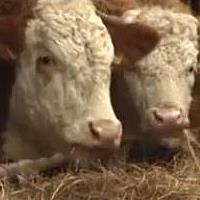(BRUSSELS) – The EU adopted new rules on conditions for the breeding, trade-in and imports into the EU of breeding animals and their genetic material on Tuesday, confirming agreement reached with the EU Parliament in 2015.
Past legislation in this area was organised according to species. The new regulation provides a single and streamlined body of provisions for bovine, porcine, ovine, caprine and equine species.
The revised rules regulate on various aspects, amongst others: the recognition of breeding organisations and private undertakings, the approval of their programmes, the entering of animals in specific breeding books and registers, performance testing and genetic evaluation, and the content of zootechnical certificates.
The new regulation will also include provisions on the performance of official controls which are tailor-made for the animal breeding sector.
It also aims to avoid obstacles to trade resulting from national transposition of EU legislation and overcome existing problems and unjustified restrictions in cross border activities of approved breed societies.
Preservation of animal genetic resources and endangered breeds
The animal breeding regulation will contribute to preserving valuable animal genetic resources, to the protection of biodiversity and to the production of typical quality regional products. How? Breed societies and breeding operations will have to meet specific and strict criteria to obtain recognition and approval of their breeding programmes by national authorities.
In the case of an endangered breeds national authorities could refuse the approval of a breeding programme or even carry out, on a temporary basis, a breeding programme for that breed, thus guaranteeing its promotion.
Next steps
The regulation will enter into force by mid-2016 and apply as from the second half of 2018.


